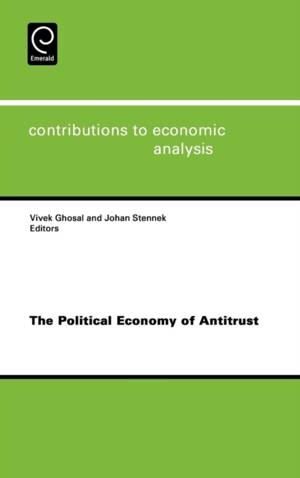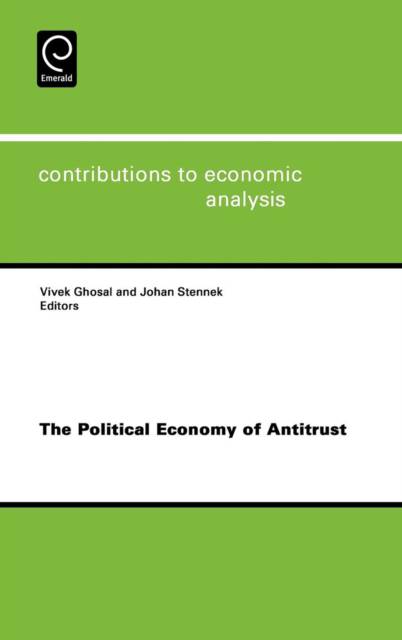
- Retrait gratuit dans votre magasin Club
- 7.000.000 titres dans notre catalogue
- Payer en toute sécurité
- Toujours un magasin près de chez vous
- Retrait gratuit dans votre magasin Club
- 7.000.0000 titres dans notre catalogue
- Payer en toute sécurité
- Toujours un magasin près de chez vous
Description
Motivated by recent events and experiences in antitrust enforcement and policy in the United States and the European Union, and new insights and findings from academic research, this book presents a collection of theoretical, empirical and public policy-oriented articles representing recent research on the political-economy of antitrust. Political-economy is defined broadly to include the demand-side drivers of antitrust activity such as market failures and interest-groups, along with supply-side drivers including ideology and partisan politics as well as the importance of informational limitations in antitrust enforcement and the institutional structure of the antitrust agencies. Examining issues related to the political-economy of antitrust is important as antitrust policy and enforcement provide a key mechanism for preserving the competitiveness of markets, with implications for innovation, efficiency, growth and welfare. This book brings together contributions by leading academic researchers in the areas of political-economy, cartels, merger and non-merger enforcement, as well as economists working with antitrust authorities in the U.S. and E.U., to make a timely contribution for researchers and practitioners. The chapters in this volume cover the full range of topics: enforcement of cartels; merger control; monopolization and abuse of dominance; and systemic issues in antitrust enforcement and policy. Since the last few years have seen significant changes in both the U.S. and E.U. in the attitudes towards cartels, the book places emphasis on antitrust enforcement of cartels, including topics such as the corporate leniency programs that have recently been introduced in the U.S. and E.U., optimal deterrence mechanisms against cartels and detection of cartels. While the individual chapters of the book make independent contributions and may be read separately, the book brings together articles from various sub-areas to present a more encompassing picture. The first chapter provides an overview of some of the trends and recent research in antitrust enforcement and policy and highlights the contributions made by the chapters in this volume.
Spécifications
Parties prenantes
- Auteur(s) :
- Editeur:
Contenu
- Nombre de pages :
- 508
- Langue:
- Anglais
- Collection :
- Tome:
- n° 282
Caractéristiques
- EAN:
- 9780444530936
- Date de parution :
- 01-04-07
- Format:
- Livre relié
- Format numérique:
- Ongenaaid / garenloos gebonden
- Dimensions :
- 141 mm x 212 mm
- Poids :
- 911 g

Les avis
Nous publions uniquement les avis qui respectent les conditions requises. Consultez nos conditions pour les avis.






